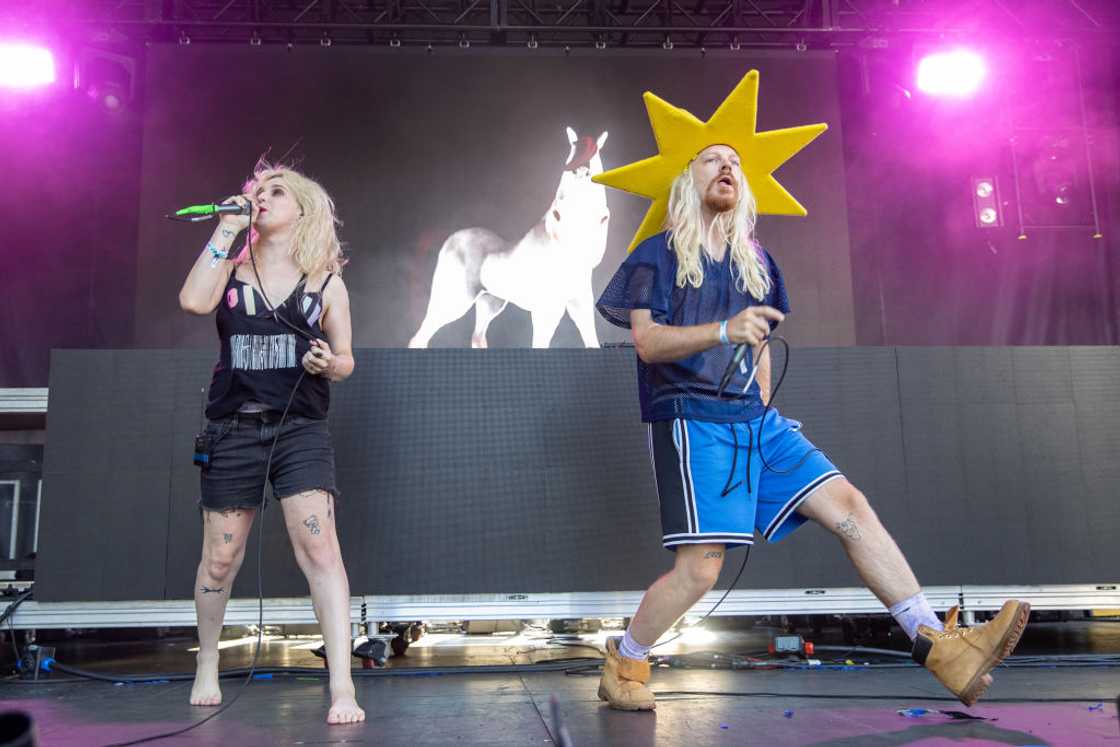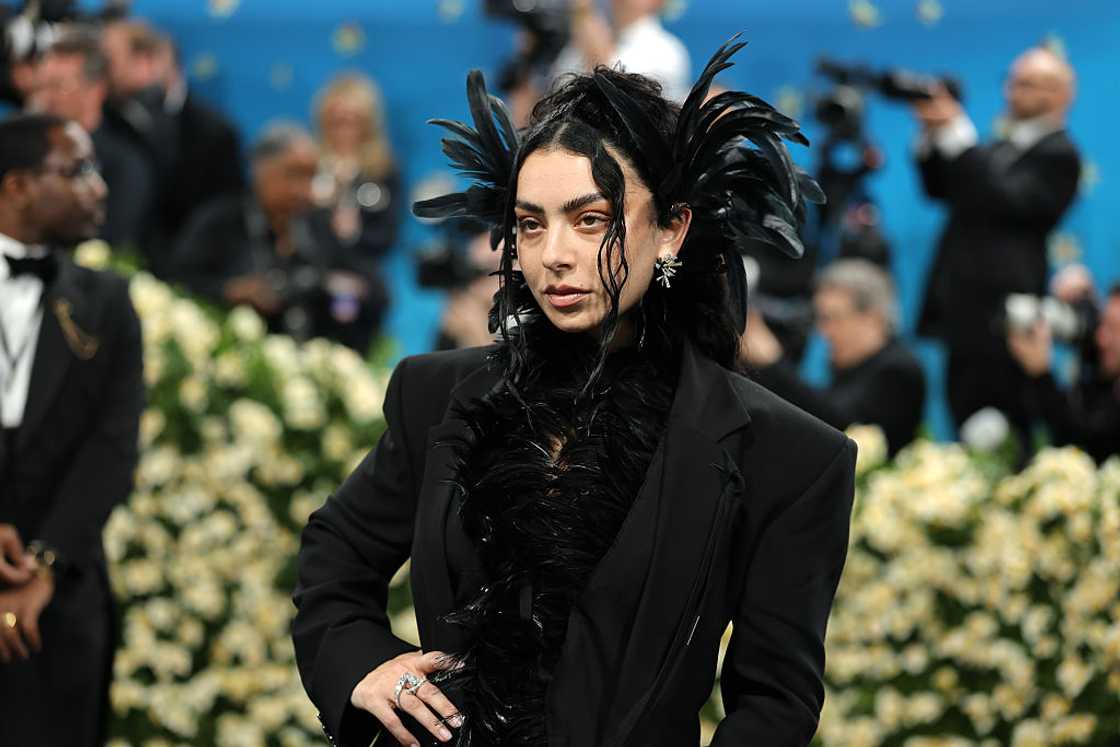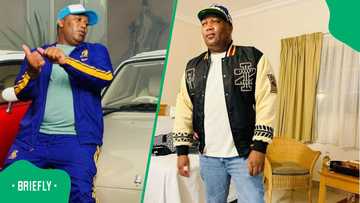What is hyperpop? Everything to know about the genre's sound and stars
Questions like "What is Hyperpop?" have echoed online since the early 2010s, highlighting the rise of a genre born on the internet blending pop, electronic, and experimental sounds. Today, it unites boundary-pushing artists redefining mainstream music, as singer Charli XCX explained:
It makes certain sounds and artists easier to digest for people.

Source: Getty Images
TABLE OF CONTENTS
Key takeaways
- Hyperpop emerged in the early 2010s through UK collective PC Music, blending pop maximalism with EDM and experimental sounds.
- The genre gained global traction by 2020, driven by TikTok trends, Spotify’s Hyperpop playlist, and artists like 100 gecs and Charli XCX.
- By 2025, songs like 100 gecs’ Money Machine, surpassing 115 million streams, highlighted the mainstream rise of hyperpop.
What is hyperpop?
Hyperpop is a loosely defined microgenre and electronic music movement that began in the UK in the early 2010s. It blends pop, electronic, hip-hop, and experimental sounds into a glitchy, high-energy style marked by pitch-shifted vocals, distorted synths, and genre-defying production.
The genre, deeply rooted in internet culture, often explores identity, gender fluidity, and digital life, making it a natural fit for Gen Z platforms like TikTok. Epidemic Sound notes in its hyperpop definition that it is less a strict genre and more an energetic, youth-driven movement.
In a 2022 interview with Splice, artist Dorian Electra described it this way:
Hyperpop is many different types of music. I like to think about it as a community of people who have similar approaches and ethos to music...I really like the playfulness...it’s just approachable and fun and not afraid to be cringe, but based at the same time.

Source: Getty Images
Who invented hyperpop?
The origins of the subgenre can be traced back to English musician A. G. Cook, often regarded as the godfather of hyperpop. Through his label PC Music, artists like GFOTY and SOPHIE shaped hyperpop's meaning and inspired acts such as Charli XCX and Hannah Diamond.
SOPHIE explained her creative vision for the genre in a 2015 Rolling Stone interview, saying:
I think all pop music should be about who can make the loudest, brightest thing...the most raw emotionally...who can use current technology, current images and people, to make the brightest, most intense, engaging thing.
Charli XCX stood out as the biggest hyperpop artist
Since Spotify launched the Hyperpop genre playlist in 2019, British pop artist Charli XCX has stood out as its defining voice, with her track Pay 4 U surpassing 366 million streams. The late British producer SOPHIE further shaped the scene with her boundary-pushing experimental sound.
The duo 100 gecs captured global attention with Money Machine, amassing over 115 million Spotify streams, according to Kworb. Other rising artists include Isabel LaRosa, Rico Nasty, Glaive, ODECORE, and Lumi Athena, who continue to push the genre’s boundaries with energetic and viral hyperpop songs.

Source: Getty Images
Is hyperpop associated with LGBT?
The hyperpop music movement is closely tied to the LGBTQ+ community, drawing strong influence from queer culture. Many leading artists, such as Dorian Electra, Laura Les, and Quay Dash, identify as gay, non-binary, or transgender, and often explore gender fluidity in their lyrics.
The genre’s signature use of vocal modulation allows artists to experiment with gender presentation and express experiences such as gender dysphoria. In a 2021 Billboard interview, Canadian hyperpop musician ElyOtto explained:
Hyperpop is very filtered…but you can manipulate it to sound however you like. I think that’s appealing to a lot of transfemme people.
Are EDM and hyperpop the same?
While both are electronic music, they differ, with Hyperpop style focusing on distorted vocals, exaggerated pop melodies, and emotional experimentation. Whereas Electronic Dance Music (EDM) is built for clubs and festivals, emphasising rhythmic beats, clean production, and high-energy performance.

Source: Getty Images
Frequently asked questions
- Who is the mother of hyperpop? The late British producer and songwriter SOPHIE is widely considered.
- What type of people listen to hyperpop? The style appeals to Gen Z, queer youth, and digital natives who value emotion and experimentation.
- What makes a song hyperpop? These tracks amplify and distort pop music elements with electronic, avant-garde, hip-hop, rock, and dance influences.
- Is hyperpop dead? This music movement is not dead but has evolved, fragmented, and inspired new subgenres and digital culture.
Conclusion
What is Hyperpop? It is a bold, experimental microgenre that blends exaggerated pop, electronic, and avant-garde sounds. Pioneered by A.G. Cook and PC Music, it inspired a wave of internet-native artists redefining pop’s boundaries.
READ MORE: Foreigner band members: A complete guide to past and present members
As Briefly.co.za published, Foreigner was formed in 1976. With a legacy spanning over four decades, past and present Foreigner band members have played significant roles since the band was formed.
Only Mick Jones is still a founding member of Foreigner, although he no longer tours full-time due to health concerns. Kelly Hansen was recruited in 2005 to replace Lou Gramm and has earned acclaim for rekindling the band’s live renditions.
Source: Briefly News





